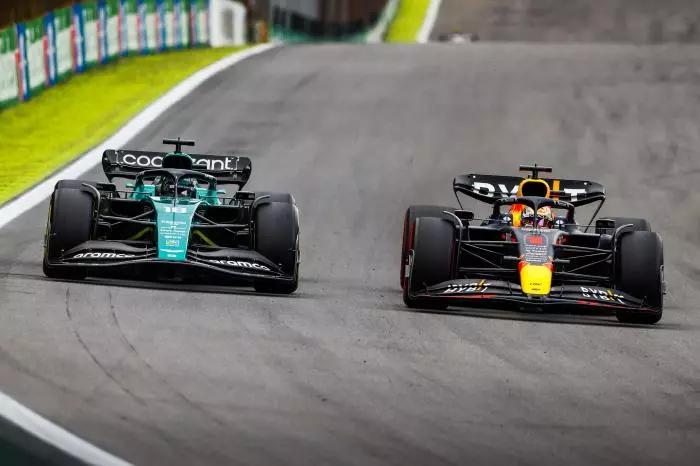Aston Martin warns that porpoising will still cause problems in the 2023 Formula 1 season

Formula 1 teams hoping they had put the worst of their porpoising issues behind them last season have an unfortunate surprise in store, according to Aston Martin.
Porpoising, or the phenomenon of the car seeming to bounce down lown long straights, is caused by the ground-effect downforce that form a large part of the new regulations created in order to make racing more competitive.
The shift towards ground-effect downforce came after the big, heavy modern Formula 1 cars found it increasingly difficult to overtake each other because the downforce technology was creating "dirty" air behind the cars.
In essence, this meant that the closer the cars got together, the harder it became for the car behind to keep up.
While the change certainly had an impact on ease of overtaking last season, the downside was huge issues with porpoising that led to lots of complaints from drivers, who were often visibly affected after races.
While technology upgrades have made some positive impacts, Aston Martin deputy technical director Eric Blandin thinks it will still be a big problem this year.
"It won't disappear completely. It's something that's inherent within this set of regulations," he told the Aston Martin official website.
"You've got big tunnels channelling air underneath a car that is running very close to the ground and effectively has a skirt created by the floor edge that's sealing the air in - this combination is what makes the car susceptible to porpoising.
"Every F1 car experiences some degree of oscillation, but with the current regulations, due to the aerodynamic load and the variation in that aerodynamic load, this oscillation is more pronounced.
"It's not simply a case of running the car in the wind tunnel to see whether it will porpoise: it doesn't work like that because it's a dynamic problem - the aerodynamic loads are constantly changing."
